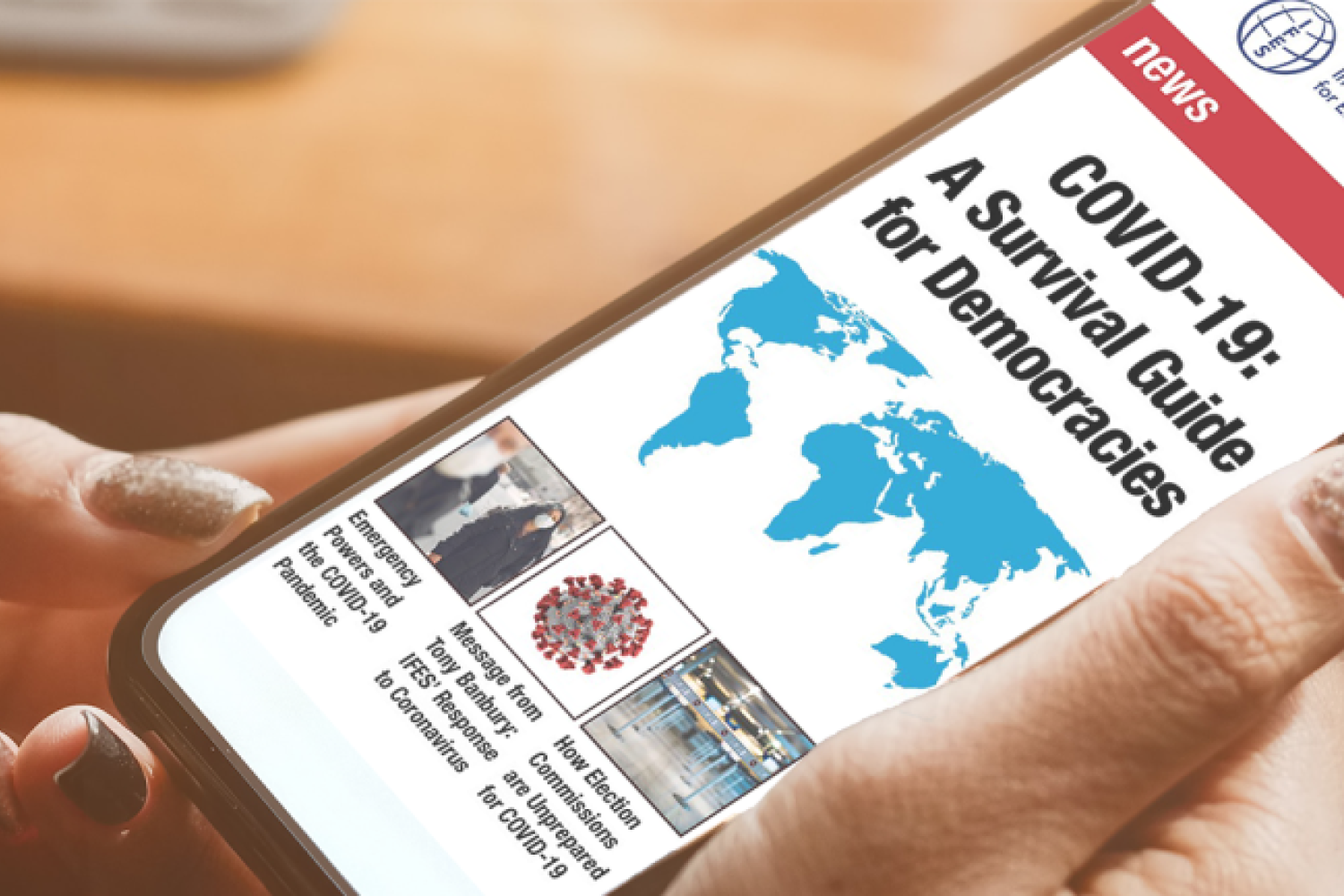
IFES COVID-19 Briefing Series: Preserving Independent and Accountable Institutions
How can independent institutions overcome COVID-19 threats to protect democracy during the crisis?
Preserving Independent and Accountable Institutions, the final paper in the International Foundation for Electoral Systems’ (IFES) COVID-19 Briefing Series, looks closely at this question and offers guidance for independent institutions as well as legislatures, executive agencies, special task forces and the international community.
While their role is not always acknowledged directly, independent institutions that undergird the democratic process — anti-corruption agencies, human rights institutions, supreme audit institutions and election management bodies, among others — have important roles to play in responding to all of the challenges presented in this series. When functioning properly, they can ensure safe, secure and trustworthy elections; bolster government transparency and information integrity; protect political rights; provide checks on government; and ensure the continuation of democratic processes during a crisis. When they lack the independence, resources or accountability mechanisms to be effective, they may be unable to play this essential role, now or over the longer term of crisis recovery.
While these independent institutions usually operate in complex and often politicized environments, by design, they have faced unique challenges during the pandemic that impact their autonomy and accountability, including:
- Confused or diminished mandates
- Increased political pressure or requirements to work closely with partisan actors
- Operational limitations from restrictive public health measures
- Financial constraints and budget cuts
- Undermined relationship with legislatures
Recommendations
Building on IFES’ Autonomy and Accountability Framework, this paper seeks to support independent government institutions to effectively respond to the challenges posed by COVID-19 and preserve their important mandates during crisis recovery. Among other recommendations, the paper suggests that independent institutions:
- Assert and fulfill mandates related to COVID-19, even when not explicitly invited to do so or when the government is uncooperative. As needed, advocate for institutional mandates to be formally clarified or expanded in order to oversee government institutions involved in COVID-19 response.
- Proactively monitor, report and issue recommendations in a timely manner, leveraging relationships with civil society, media and the public to maximize reach and effectiveness.
- Maintain transparency internally and with the public when working with partisan agencies or actors.
- Within their legal jurisdiction, modify procedures and processes where possible to continue conducting oversight and providing services to the public. Clearly communicate changes to the public.
- Consider technological innovations that increase opportunities to interact with the public and to improve access to services and information both during and after the crisis.
- Advocate for direct allocations in stimulus packages to account for the surge in work. Consider redirecting resources to respond to the crisis and partnering with financial institutions, tech firms and investigators to provide more robust ex post oversight.
- Help to fill gaps in legislative oversight capacity by providing technical support to the review of executive action and draft legislative provisions.
Additionally, other stakeholders have roles to play in the success of independent institutions.
- Legislators should leverage their unique relationships with independent institutions to protect their autonomy and ensure that they are accountable to their mandates.
- Executive agencies and COVID-19 task forces should actively seek input and recommendations from independent institutions on COVID-19 response efforts, especially those tasked with protecting human rights and preventing corruption.
- International donors and technical assistance providers should ensure contributions for COVID-19 response are transparent and provide support to bolster the resilience and capacity of independent institutions.
Read and download Preserving Independent and Accountable Institutions.
Find the other papers in the IFES COVID-19 Briefing Series, which tackles fundamental areas of concern for democracy and governance in the wake of the pandemic.
Learn more at IFES’ COVID-19 Survival Guide for Democracies.
Follow #COVIDxDemocracy for new analysis and innovative solutions during the pandemic.
Contact media@ifes.org for more information.
IFES COVID-19 Briefing Series: Preserving Independent and Accountable Institutions
Authors: Erica Shein, Director, Center for Applied Research and Learning; Alexandra Brown, Legal and Research Officer
Lead Editor: Erica Shein, Director, Center for Applied Research and Learning
Editors: Chad Vickery, Vice President, Global Strategy and Technical Leadership; Angela Canterbury, Director, Strategic Communications and Advocacy













